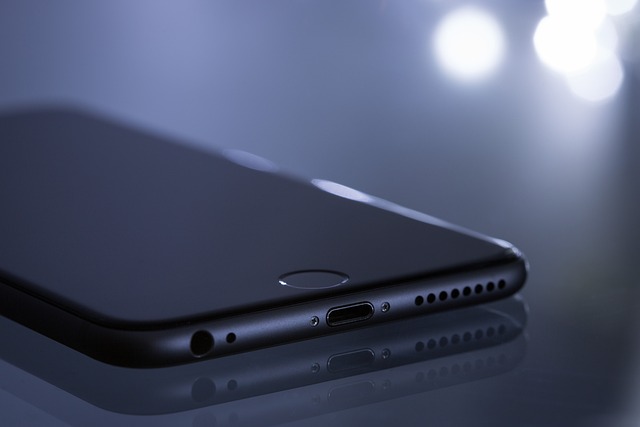When your iPhone battery shows signs of fatigue, it’s tempting to seek out a replacement. However, opting for non-genuine batteries over authentic Apple ones can introduce several risks that compromise both your device’s functionality and your safety. This article delves into the seven key risks associated with using third-party batteries and highlights why investing in genuine components is crucial for maintaining peak performance and ensuring longevity of your iPhone. Consider the potential consequences before deciding to replace an iphone battery, as the differences between genuine and non-genuine can significantly impact user experience and device integrity.
- Risk of Poor Battery Performance
- Potential Overheating and Fire Hazards
- Compromised Charging Efficiency and Durability
- Unreliable Quality Control and Safety Standards
- Reduced Lifespan of Your iPhone
- Possible Malfunctioning with Original Device Features
- Voiding of Manufacturer's Warranty and Future Repairs
Risk of Poor Battery Performance

When opting to replace an iPhone battery with a non-genuine version, users may encounter significant issues related to poor battery performance. Non-genuine batteries often fail to deliver the same level of efficiency and longevity as their authentic counterparts. These batteries might initially appear cost-effective, but their shorter lifespan can lead to frequent replacements, causing long-term financial strain. Moreover, the performance degradation is not the only concern; these batteries can also be less capable of holding a charge compared to genuine Apple batteries. This discrepancy can result in your device losing power faster, which can be particularly inconvenient during critical moments or when you’re away from a charging source. The inferior quality of non-genuine batteries is a direct consequence of not adhering to the stringent standards set by Apple for their genuine parts. This includes the use of subpar materials and components that may compromise the overall health and functionality of your iPhone. To maintain optimal battery performance, it’s recommended to seek out genuine replacement options through authorized service providers or official Apple retailers. This ensures that your device receives a battery designed to work seamlessly with your iPhone, providing consistent power output and a reliable user experience.
Potential Overheating and Fire Hazards

When considering the replacement of an iPhone battery, opting for non-genuine options can pose significant risks, particularly in terms of potential overheating and fire hazards. Genuine Apple batteries are designed with a stringent set of safety standards that ensure optimal performance and safety. In contrast, non-genuine batteries may not adhere to these same safety measures, potentially leading to dangerous situations. These substandard batteries can overheat due to poor quality materials or improper construction, which in turn can cause them to catch fire or even explode. The risk of such incidents is heightened when the battery is subjected to everyday use and environmental factors. It’s crucial for consumers to be aware that while a non-genuine battery might offer a short-term cost advantage, the long-term consequences can be detrimental to both personal safety and the longevity of the device. Therefore, for the well-being of your iPhone and your own safety, it is highly recommended to use genuine Apple batteries when replacing your device’s power source.
Compromised Charging Efficiency and Durability

When iPhone users opt for non-genuine batteries to replace their aging cells, they may encounter compromised charging efficiency. These counterfeit batteries often fall short in delivering the promised battery life due to subpar materials and manufacturing processes. The genuine iPhone batteries are engineered to work seamlessly with the device’s charging hardware and software, ensuring optimal performance. In contrast, non-genuine batteries can lead to inconsistent charging patterns, where the phone might take longer to charge or may not hold a charge as effectively. This inefficiency not only disrupts the user experience but also shortens the battery’s lifespan. The durability of non-genuine batteries is another significant concern. Genuine Apple batteries are subjected to rigorous testing to withstand daily use and maintain a stable temperature under various conditions. Non-genuine batteries, however, may not have been similarly tested, leading to potential overheating issues and a higher risk of malfunction or damage. Over time, this can result in reduced capacity and even sudden failure, potentially causing irreparable harm to the iPhone’s internal components. The bottom line is that while non-genuine batteries might offer an immediate cost saving, their long-term impact on charging efficiency and durability could lead to increased costs and inconvenience for users in the long run. It is advisable to invest in genuine Apple batteries when replacing your iPhone battery to maintain its performance and reliability.
Unreliable Quality Control and Safety Standards

When considering the replacement of an iPhone battery, opting for non-genuine options can pose significant risks due to unreliable quality control and safety standards. These counterfeit batteries often fail to meet Apple’s rigorous quality criteria, which are designed to ensure both the longevity and safety of your device. The authentic batteries undergo stringent tests to guarantee they function optimally within the iPhone’s system. In contrast, non-genuine batteries may not have been subjected to similar tests, leading to potential performance issues and a higher risk of overheating or even posing a fire hazard. It’s crucial for users to recognize that while a non-genuine battery might offer a temporary solution at a lower cost, the long-term implications on both device health and personal safety can be severe. Therefore, prioritizing genuine parts, as recommended by Apple, is essential for maintaining both the integrity of your iPhone and your personal well-being.
Reduced Lifespan of Your iPhone

When opting for non-genuine iPhone batteries, users risk compromising the lifespan of their device. Genuine Apple batteries are designed to work seamlessly with iPhones, ensuring optimal performance and longevity. In contrast, third-party batteries may not adhere to the same high standards and could lead to a shorter operational period for your iPhone. Over time, these unauthorized batteries can become unresponsive or retain charge inefficiently. This not only hampers the user experience but also necessitates more frequent replacements of the iphone battery, which can be costly and time-consuming in the long run. It’s advisable to invest in a genuine replacement when considering an iphone battery change to maintain the device’s reliability and performance over its intended usage span.
Possible Malfunctioning with Original Device Features

When an iPhone battery needs replacement, opting for non-genuine batteries can lead to potential malfunctions that may disrupt the original device features. Genuine Apple batteries are meticulously designed to harmonize with the iPhone’s intricate system, ensuring optimal performance and power management. In contrast, non-genuine batteries might fail to deliver the same level of functionality, potentially causing issues such as incorrect battery charge status displays or subpar battery health readings. These discrepancies can result in unexpected shutdowns during operation or a reduction in talk time, reducing the overall reliability of your iPhone. Moreover, non-genuine batteries may not comply with Apple’s safety and durability standards, increasing the risk of overheating or other unintended behaviors. To maintain the integrity of your device’s features and protect your investment, it is advisable to consider a genuine battery replacement service.
Voiding of Manufacturer's Warranty and Future Repairs

When opting for non-genuine iPhone batteries, consumers risk voiding the manufacturer’s warranty on their device. Apple’s warranty program is designed to cover issues that arise from a defective battery. However, if a third-party battery is installed and later causes a malfunction or damage, the warranty may no longer apply. This means that should the original battery fail, the cost of replacement and associated repairs could be borne entirely by the user. Additionally, the use of non-genuine batteries can complicate future repair scenarios. These unauthorized batteries might not adhere to Apple’s design and engineering specifications, which can lead to incompatibility with subsequent iOS updates or other iPhone components. This can result in a device that is less efficient and more prone to errors, potentially necessitating professional intervention to rectify any issues. For those concerned about the longevity of their iPhone and the validity of its warranty, it’s advisable to consider genuine battery replacements, ensuring both the short-term functionality and long-term health of their device.
